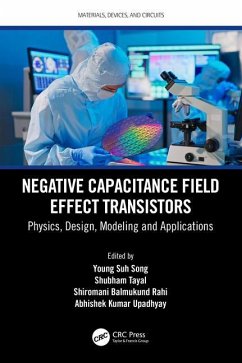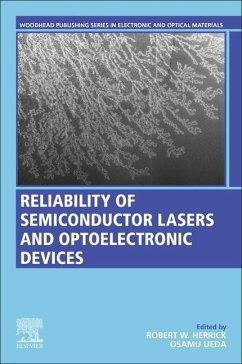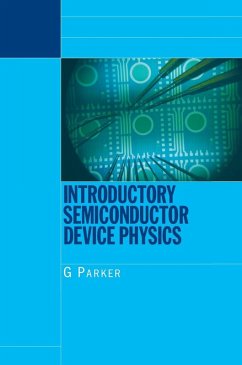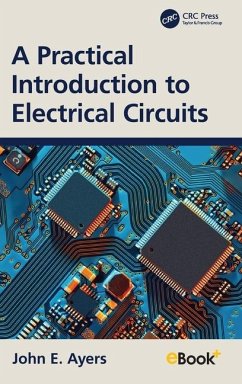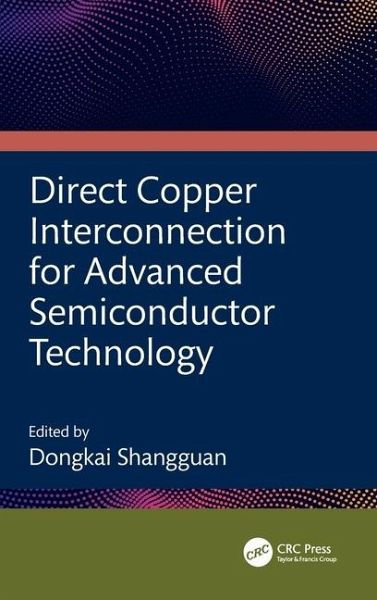
Direct Copper Interconnection for Advanced Semiconductor Technology
Versandkostenfrei!
Versandfertig in 6-10 Tagen
176,99 €
inkl. MwSt.
Weitere Ausgaben:

PAYBACK Punkte
88 °P sammeln!
In the "More than Moore" era, performance requirements for leading edge semiconductor devices are demanding extremely fine pitch interconnection in semiconductor packaging. Direct copper interconnection has emerged as the technology of choice in the semiconductor industry for fine pitch interconnection, with significant benefits for interconnect density and device performance. Low-temperature direct copper bonding, in particular, will become widely adopted for a broad range of highperformance semiconductor devices in the years to come.This book offers a comprehensive review and in-depth discus...
In the "More than Moore" era, performance requirements for leading edge semiconductor devices are demanding extremely fine pitch interconnection in semiconductor packaging. Direct copper interconnection has emerged as the technology of choice in the semiconductor industry for fine pitch interconnection, with significant benefits for interconnect density and device performance. Low-temperature direct copper bonding, in particular, will become widely adopted for a broad range of highperformance semiconductor devices in the years to come.
This book offers a comprehensive review and in-depth discussions of the key topics in this critical new technology. Chapter 1 reviews the evolution and the most recent advances in semiconductor packaging, leading to the requirement for extremely fine pitch interconnection, and Chapter 2 reviews different technologies for direct copper interconnection, with advantages and disadvantages for various applications. Chapter 3 offers an in-depth review of the hybrid bonding technology, outlining the critical processes and solutions. The area of materials for hybrid bonding is covered in Chapter 4, followed by several chapters that are focused on critical process steps and equipment for copper electrodeposition (Chapter 5), planarization (Chapter 6), wafer bonding (Chapter 7), and die bonding (Chapter 8). Aspects related to product applications are covered in Chapter 9 for design and Chapter 10 for thermal simulation. Finally, Chapter 11 covers reliability considerations and computer modeling for process and performance characterization, followed by the final chapter (Chapter 12) outlining the current and future applications of the hybrid bonding technology. Metrology and testing are also addressed throughout the chapters. Business, economic, and supply chain considerations are discussed as related to the product applications and manufacturing deployment of the technology, and the current status and future outlook as related to the various aspects of the ecosystem are outlined in the relevant chapters of the book.
The book is aimed at academic and industry researchers as well as industry practitioners, and is intended to serve as a comprehensive source of the most up-to-date knowledge, and a review of the state-of-the art of the technology and applications, for direct copper interconnection and advanced semiconductor packaging in general.
This book offers a comprehensive review and in-depth discussions of the key topics in this critical new technology. Chapter 1 reviews the evolution and the most recent advances in semiconductor packaging, leading to the requirement for extremely fine pitch interconnection, and Chapter 2 reviews different technologies for direct copper interconnection, with advantages and disadvantages for various applications. Chapter 3 offers an in-depth review of the hybrid bonding technology, outlining the critical processes and solutions. The area of materials for hybrid bonding is covered in Chapter 4, followed by several chapters that are focused on critical process steps and equipment for copper electrodeposition (Chapter 5), planarization (Chapter 6), wafer bonding (Chapter 7), and die bonding (Chapter 8). Aspects related to product applications are covered in Chapter 9 for design and Chapter 10 for thermal simulation. Finally, Chapter 11 covers reliability considerations and computer modeling for process and performance characterization, followed by the final chapter (Chapter 12) outlining the current and future applications of the hybrid bonding technology. Metrology and testing are also addressed throughout the chapters. Business, economic, and supply chain considerations are discussed as related to the product applications and manufacturing deployment of the technology, and the current status and future outlook as related to the various aspects of the ecosystem are outlined in the relevant chapters of the book.
The book is aimed at academic and industry researchers as well as industry practitioners, and is intended to serve as a comprehensive source of the most up-to-date knowledge, and a review of the state-of-the art of the technology and applications, for direct copper interconnection and advanced semiconductor packaging in general.





